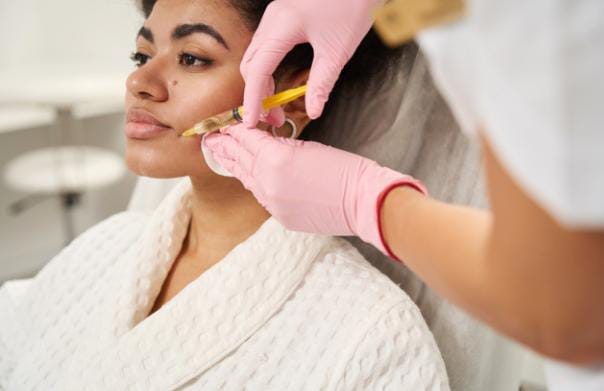Reconstructive cosmetic surgery holds a much broader purpose than aesthetic enhancement alone. While often grouped with elective beauty treatments, reconstructive procedures restore function, support physical health, and significantly impact psychological well-being. This article explores how reconstructive surgery contributes to holistic wellness — not just appearance.
What Is Reconstructive Cosmetic Surgery?
Reconstructive procedures are designed to correct physical abnormalities caused by medical conditions, trauma, or congenital issues. These may include:
- Breast reconstruction after mastectomy
- Nasal surgery to restore airflow
- Eyelid correction to improve vision
- Scar revision after injury
- Male breast reduction for glandular enlargement
Though the visual result is important, the primary goal is medical — to restore normalcy and function.
Mental Health and Emotional Well-Being
People recovering from illness or trauma often face emotional challenges related to body image and identity. Reconstructive procedures offer a pathway to personal recovery by:
- Helping patients regain confidence
- Supporting reintegration into work and social life
- Reducing anxiety tied to visible medical conditions
This impact is particularly strong when the physical changes from illness or injury are publicly visible, such as facial scars or breast loss after cancer treatment. By restoring appearance to a more familiar state, reconstructive surgery often helps patients feel more like themselves again.
For those seeking to restore or enhance shape after medical events or natural changes, procedures like this approach to breast aesthetics may support both confidence and physical symmetry.
Function First: How These Procedures Improve Daily Life
Reconstructive surgery goes beyond appearance — many procedures are functionally transformative. Examples include:
- Breathing Improvements: Nasal surgery isn’t just cosmetic; it can restore airflow blocked by trauma or deviated structures.
- Vision Restoration: Eyelid surgeries can remove sagging tissue that blocks sightlines, making daily tasks easier.
- Mobility and Comfort: Skin tightening procedures after weight loss can reduce discomfort and skin-related infections.
- Chest Comfort: Gynecomastia surgery can relieve discomfort, chafing, and postural issues in men with excess breast tissue.
When a procedure corrects a physical challenge, the benefit extends to posture, pain levels, and physical performance — improving overall quality of life.
A Balanced Perspective on Beauty
While appearance plays a role in patient satisfaction, reconstructive surgery isn’t about chasing perfection. It’s about restoring balance — bringing form and function into alignment.
For instance, women choosing breast reconstruction post-mastectomy are not doing so out of vanity. The choice often reflects a desire to restore bodily symmetry and move forward from illness with greater confidence. Similarly, men seeking gynecomastia correction often do so for relief and personal comfort, not aesthetics alone.
In this context, “looking better” becomes a meaningful byproduct of healing — not the objective in itself.
Technological Precision and Surgical Advances
Modern reconstructive surgery benefits from highly specialized tools that improve outcomes and reduce recovery time. These may include:
- Advanced imaging software to simulate outcomes
- Minimally invasive techniques that limit scarring
- Biocompatible materials that integrate safely with natural tissues
Many practices, including Feel Beautiful Plastic Surgery in San Diego, use these tools to deliver highly personalized results that support both wellness and aesthetic goals.
When to Consider a Reconstructive Procedure
Here’s a quick framework to help assess whether reconstructive cosmetic surgery might be appropriate:
| Condition | Potential Procedure |
| Post-cancer surgery (e.g., mastectomy) | Breast reconstruction |
| Vision blocked by drooping eyelids | Upper eyelid lift |
| Discomfort due to chest asymmetry | Male breast reduction (gynecomastia repair) |
| Breathing difficulties from nasal issues | Functional rhinoplasty |
| Excess skin from weight loss | Skin tightening or panniculectomy |
If you’re experiencing physical or emotional effects due to a medical condition that has altered your appearance or function, reconstructive surgery may offer relief and improvement.
Ethical and Personalized Care Matters
The effectiveness of any surgical procedure depends on more than tools and techniques — it also depends on ethics, experience, and patient-focused care. At centers like Feel Beautiful Plastic Surgery, treatment plans are built around the individual’s health, goals, and long-term satisfaction — not short-term transformation.
This kind of care prioritizes:
- Realistic expectations
- Long-term outcomes
- Patient education and informed choice
- Respect for each person’s unique health journey
Conclusion: A Vital Tool for Holistic Wellness
Reconstructive cosmetic surgery is a vital component of modern wellness care. Whether addressing physical impairments, aiding recovery from illness, or helping patients reconnect with their bodies, it delivers tangible medical, emotional, and lifestyle benefits.
It’s time to shift the perception. These procedures are not merely about looking better — they’re about feeling whole again, regaining control, and living fully.





























